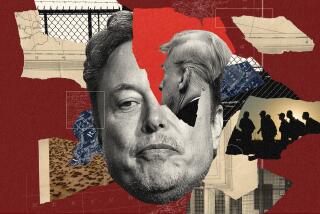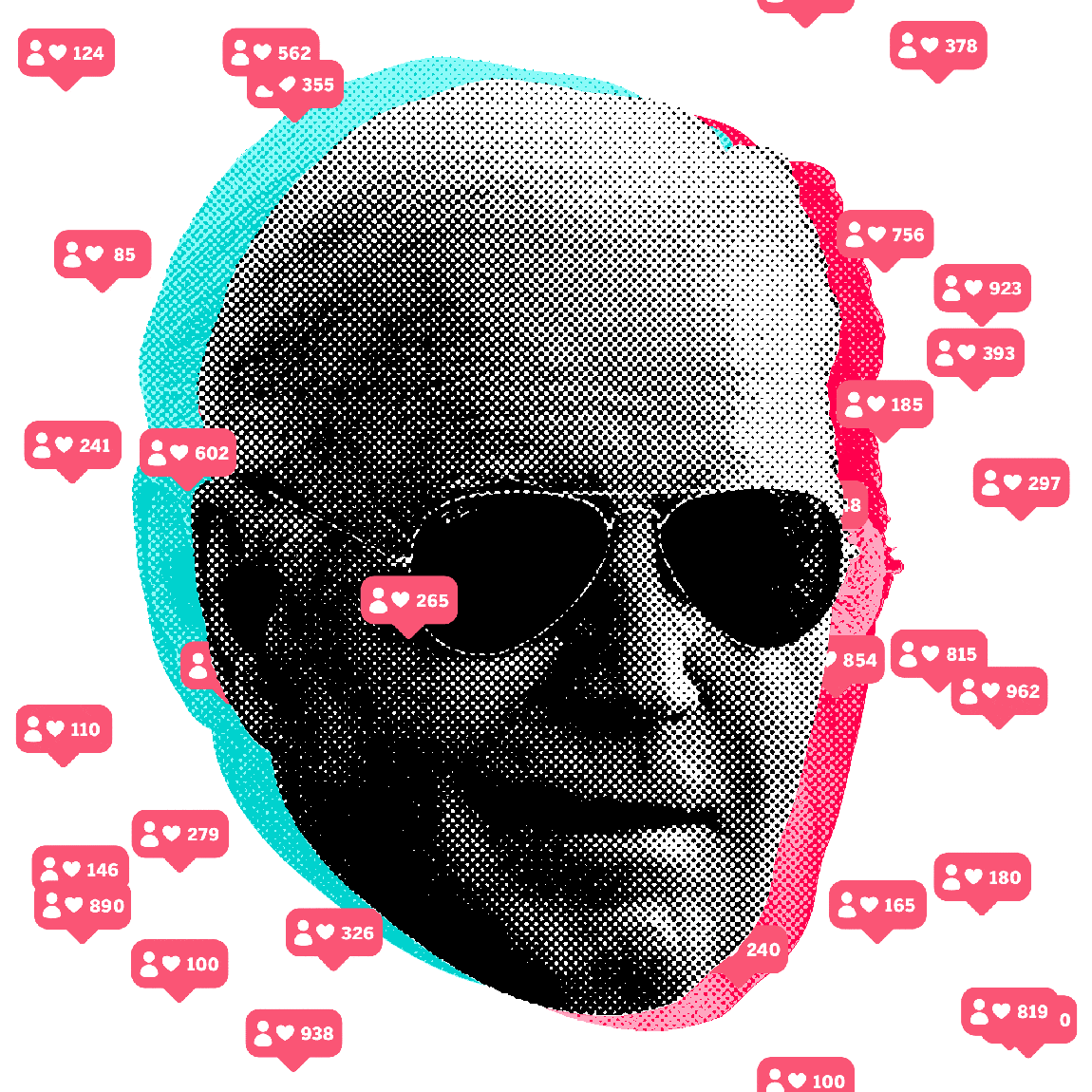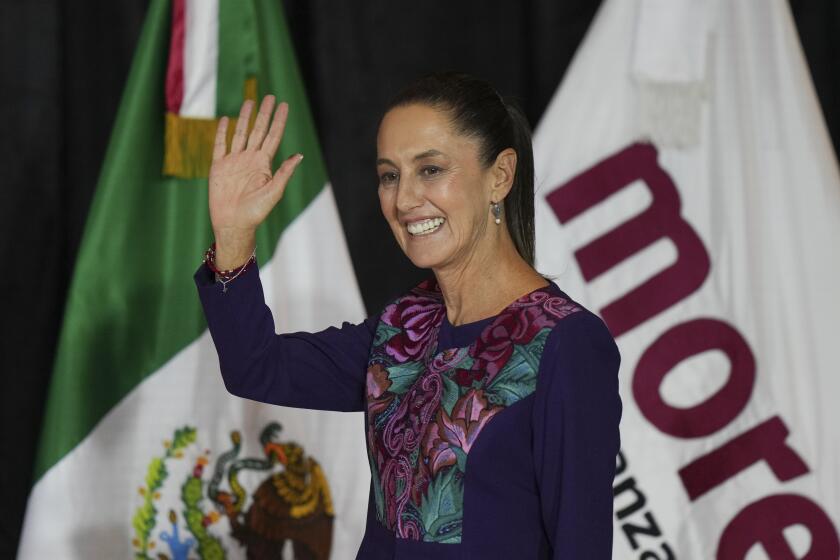Poll Shows Voters Cool to Bond Measure
In a preview of tough political tests looming for Gov. Arnold Schwarzenegger, a statewide poll released Wednesday showed widespread voter opposition to a pillar of the Republican governor’s fiscal recovery plan.
Despite Schwarzenegger’s strong personal popularity -- 64% of likely voters approve of the way he is doing his job, according to the poll -- only 35% were planning to vote “yes” on Schwarzenegger’s proposal to borrow $15 billion to address a budget deficit for this year. The poll found 44% of those surveyed said they would not support the March 2 measure, with the rest undecided.
In a pair of other political twists for Schwarzenegger, Democratic lawmakers rejected one of his initiatives in a Senate Education Committee vote Wednesday, and Republicans dissatisfied with the spending limit he negotiated with Democrats last month launched a signature drive for a constitutional spending limit that could trump the governor’s agreement.
The poll, released by the Public Policy Institute of California, found that a companion initiative that would require the state to pass a balanced budget and limit future borrowing was favored by 57% of likely voters.
Schwarzenegger’s press office referred questions on the poll to Republican strategist Todd Harris, who is involved in the campaign to promote the governor’s ballot initiatives.
“This poll didn’t teach us anything that we did not know already, which is we’re going to need to wage an aggressive and well organized campaign to educate Californians on the dire fiscal ramifications if [Schwarzenegger’s ballot initiatives] don’t pass,” said Harris. “It’s a fight that we are prepared to wage and it’s one we’re going to win.”
The Legislature approved both measures for the ballot last month at Schwarzenegger’s urging.
Failure of the bond measure would jeopardize California’s ability to pay off $14 billion in short-term loans that are due in June, raising the specter of a devastating cut in state services. Banks would get first crack at state tax collections until the loans were repaid.
Rejection of the bond measure by voters would also force Schwarzenegger and lawmakers to find billions of dollars in additional service cuts and tax increases.
“It’s not like we can fudge things if this doesn’t pass,” said Assemblyman Joe Canciamilla (D-Pittsburg) “If it doesn’t pass we are facing a fiscal meltdown.”
The institute’s poll raised the question of whether Schwarzenegger’s endorsement would be enough to sell the bond proposal, experts said.
“Popularity does not necessarily translate into influence,” said Mark Baldassare, the institute’s director of research. “Voters have to like the message, not just the messenger.”
The PPIC telephone survey of 2,002 Californians -- including 912 likely voters -- also suggested that the public doesn’t completely embrace the no-new-taxes position of Schwarzenegger and Republican lawmakers. A slight majority of likely voters -- 53% -- said they preferred to resolve the state’s fiscal crisis with a mix of tax increases and spending cuts. Seventy-six percent of likely voters approved of increasing “sin taxes” on alcohol and cigarettes and 71% favored raising the income tax on the state’s wealthiest citizens, a proposal advocated by Democratic lawmakers as a complement to spending cuts favored by Republicans.
Schwarzenegger is seeking to convince voters that the companion balanced-budget initiative would guarantee that the $15-billion bond measure would be the last time lawmakers could borrow money to close a budget deficit.
But many Republicans have expressed unhappiness with the balanced-budget initiative, which they contend will do little to rein in legislative spending. The initiative was the product of December negotiations between Schwarzenegger and Democratic lawmakers after Democrats rejected a rigid spending cap favored by Republicans.
On Wednesday, circumventing the Legislature’s Democratic majority, some of Schwarzenegger’s economic advisors unveiled a constitutional spending cap they hope to put before voters in November -- potentially overriding the governor’s March proposal. The proposed cap would essentially shrink the size of government by restricting spending from growing faster than population and inflation. Even if lawmakers raised taxes, they wouldn’t be able to spend the money on new government programs or increased investment in infrastructure.
Assemblyman John Campbell (R-Irvine) and officials from the Howard Jarvis Taxpayers Assn. and the California Taxpayers Assn. said they were gathering signatures to put their proposed spending cap on the ballot in November.
“What is on the March ballot is not a spending limit,” Campbell said.
Campbell and the taxpayer groups said they supported the governor’s March ballot proposals nevertheless because they were a good starting point for future fiscal discipline.
The Campbell campaign puts Schwarzenegger in an awkward political position because the governor made a commitment to Democrats that he wouldn’t push for a spending cap at a later date in exchange for Democratic support for the balanced-budget proposal and bond.
Campbell suggested that Schwarzenegger’s agreement with Democrats didn’t apply to the governor’s allies.
Assembly Republican Leader Kevin McCarthy (R-Bakersfield) said he would support Campbell’s spending cap initiative. McCarthy said he wasn’t concerned about the spending cap campaign possibly confusing voters as they considered whether to vote for the governor’s proposals March 2, and downplayed the importance of the poll showing weak support for the bond proposal.
“Any time you bring up something with the budget, it’s going to have a negative connotation, because the California budget is negative,” he said.
As Schwarzenegger pressed his case for more federal aid for California in a Los Angeles meeting with Vice President Dick Cheney, Democrats on the Senate Education Committee rejected Schwarzenegger’s call for the Legislature to repeal a law that makes it difficult for public schools to hire outside contractors to drive buses and perform other support services.
In his State of the State speech last week, Schwarzenegger had singled out the repeal of the restrictions on outside contracting as an example of legislative action needed to “give local schools the freedom to be cost efficient.” He said the repeal of SB 1419 by Sen. Richard Alarcon (D-Sun Valley) “will free up more money for textbooks and other vital classroom needs.”
Alarcon’s measure became effective last January.
Sen. Bill Morrow (R-Oceanside), the author of legislation aimed at repealing SB 1419, said Wednesday during a meeting of the Senate committee that school districts around the state could save at least $300 million a year by hiring private contractors for some services.
The committee rejected Morrow’s repeal legislation by a 6-4 vote, with only one Democrat -- Sen. Jack Scott of Altadena -- voting with three Republicans in favor.
Times staff writer Nancy Vogel contributed to this report.
More to Read
More to Read
More to Read
Get the L.A. Times Politics newsletter
Deeply reported insights into legislation, politics and policy from Sacramento, Washington and beyond. In your inbox three times per week.
You may occasionally receive promotional content from the Los Angeles Times.







